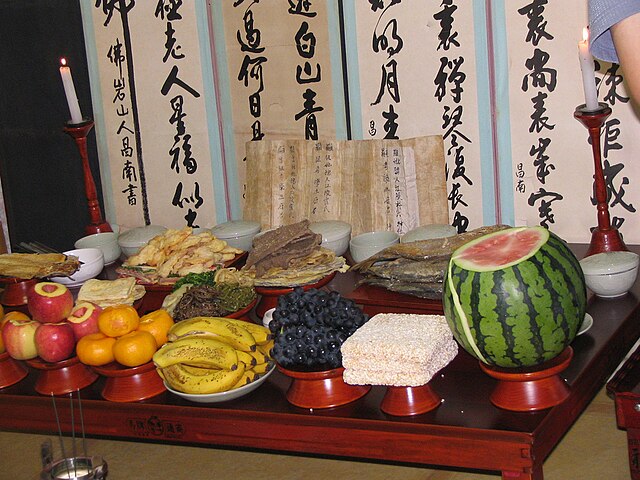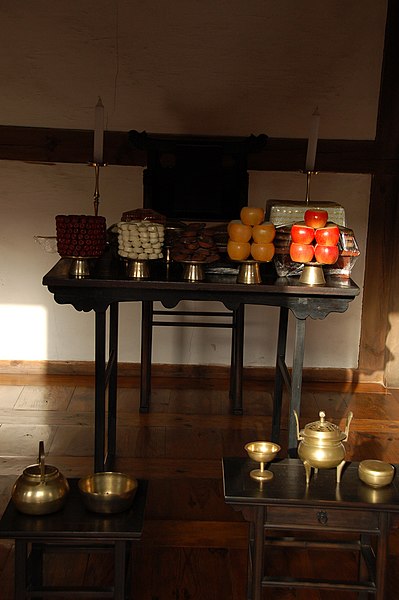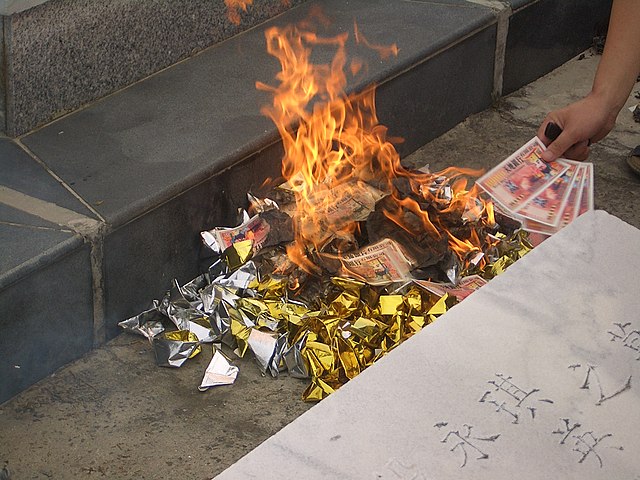Jesa is a ceremony commonly practiced in Korea. Jesa functions as a memorial to the ancestors of the participants. Jesa are usually held on the anniversary of the ancestor's death. The majority of Catholics, Buddhists and nonbelievers practice ancestral rites, although Protestants do not. The Catholic ban on ancestral rituals was lifted in 1939, when Pope Pius XII formally recognized ancestral rites as a civil practice. Many Korean Christians, particularly Protestants, no longer practice this rite. Christians generally, and Muslims avoid the rites, and many emigrants avoiding the rites.
A Korean jesa spread (2005)
A Chinese woman performing Jesa in Beijing
Jesasang (Jesa table)
Korean Jesa
The veneration of the dead, including one's ancestors, is based on love and respect for the deceased. In some cultures, it is related to beliefs that the dead have a continued existence, and may possess the ability to influence the fortune of the living. Some groups venerate their direct, familial ancestors. Certain religious groups, in particular the Eastern Orthodox Churches, Catholic Church and Anglican Church venerate saints as intercessors with God; the latter also believes in prayer for departed souls in Purgatory. Other religious groups, however, consider veneration of the dead to be idolatry and a sin.
Famadihana reburial ceremony
Burning of incense during a veneration at Mengjia Longshan Temple, which is dedicated to Guan Yu, Mazu, and others
Burning offerings
Śrāddha taking place at the Jagannath Ghat in Calcutta, at the end of Pitru Paksha.








